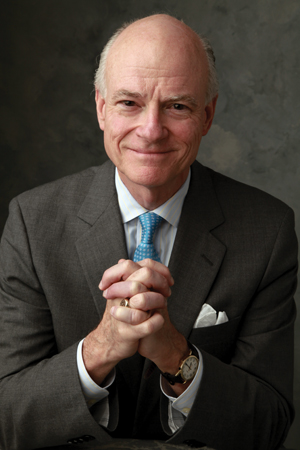President's Message
Supporting Our Veterans: We can help those who serve our country in many ways

Photo of William C. Hubbard by Marc Hauser
The American Bar Association has long championed the legal rights of those who have answered the call of duty. Earlier this year, the ABA and the U.S. Department of Veterans Affairs implemented a pilot project, the Veterans' Claims Assistance Network, to help veterans whose disability claims are backlogged or are at risk of being delayed.
In recent years, backlogged claims have posed a great challenge for veterans seeking disability and other benefits. Even with 1 million claims a year being cleared, more than 500,000 claims have been pending for two months or more. Reasons for the delays include missing documents, required medical appointments and the need to file numerous forms.
To help clear the backlog, the VA is contacting hundreds of eligible veterans each month about the services of VCAN and other veterans service organizations. VCAN referred dozens of veterans to volunteer lawyers in just the first month of the program, which runs through 2015 in the pilot cities of Chicago and St. Petersburg, Florida. Participating lawyers get free CLE training and expedited consideration for accreditation to represent veterans before the VA.
Lawyers understand what it takes to assemble evidence and present a persuasive case. These are key skills in helping veterans make their cases to the VA. Such assistance can have positive, far-reaching and systemic impact. Veterans served through VCAN get assistance and should receive their benefits more rapidly. And the support provided by VCAN will supplement the overall delivery of services, benefiting all veterans within the system.
VCAN is one of many legal assistance programs for veterans promoted by the ABA. Others, like the Homeless Veterans Justice Initiative, focus on the 12 percent of homeless adults who previously served in the military.
Many of these homeless veterans need legal assistance for eviction and foreclosure prevention, child support issues, outstanding warrants and fines, and restoration of driver's licenses. They also need legal help with family reconciliation, credit counseling and government benefits.
The legal community also supports programs such as veterans treatment courts, which number more than 250 nationwide. The private bar, legal aid offices, bar associations, judges, in-house counsel, prosecutors, public defenders, law students and others—often in collaboration with doctors, social workers, educators and other providers—have all helped veterans get the services they need.
Another important program, the ABA Military Pro Bono Project, takes civil legal problems referred by military lawyers and assigns them to civilian lawyers who provide pro bono services to junior-enlisted, active-duty military personnel and their families.
As lawyers, we can help. To learn more and to volunteer, please visit VCAN (abavcan.org), the ABA Coordinating Committee on Veterans Benefits and Services (americanbar.org/veterans) or the ABA Military Pro Bono Project (militaryprobono.org).
How we treat and support our veterans defines the moral character of our profession and our nation. As President George Washington said: "Every satisfaction which can reasonably be requested should be given to those veteran troops who, through almost every distress, have been so long and so faithfully serving the states."
This article originally appeared in the November 2014 issue of the ABA Journal with this headline: "Supporting Our Veterans: We can help those who serve our country in many ways."



